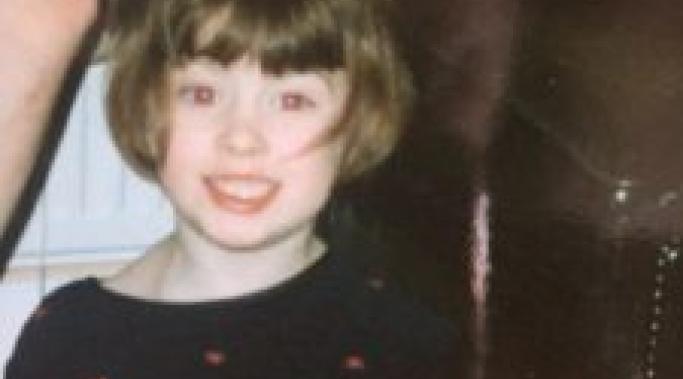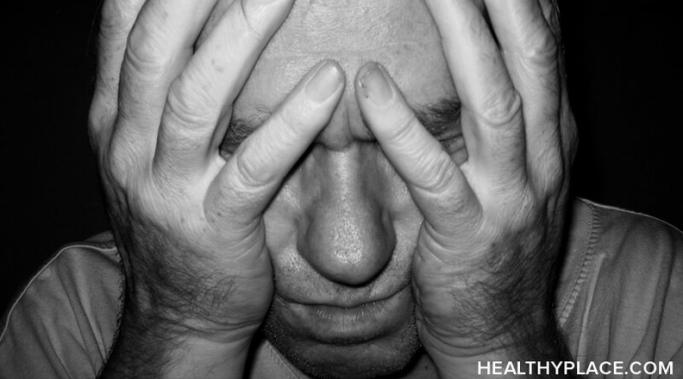To recreate yourself without anxiety and depression is a wonderful, liberating thing to do. Anxiety and depression are heavy burdens that can seem to completely overtake our lives. Anxiety keeps us trapped in things such as worry and fear, and depression weights us down and zaps joy and energy. The symptoms of anxiety and the symptoms of depression sometimes feel like our identity, like who we have become. A powerful way to break free from the all-consuming trap of anxiety and depression is to recreate yourself without anxiety and depression.
Anxiety Videos – Anxiety Schmanxiety
I understand age-related anxiety. I’m going to turn 25 on the 21st of January. This is, of course, hardly an advanced age but, still, it feels like kind of a landmark birthday. The Internet is littered with lists of things that you should do and places you should travel to by this age, almost as if it is some sort of cut off date for being young and reckless. And I've never, in all honesty, been all that good at being young and reckless. I’m incredibly cautious and am terrified of most things so the thought of dropping everything and going backpacking in some faraway country is beyond my comprehension. This is, of course, difficult, as photographic depictions of youth in the media generally focus on perfectly slim, young things with seemingly limitless bank accounts leaping from waterfalls and laughing in exotic locations (Body-Image Distortion a Growing Problem Among Women and Men). Age-related anxiety is something I'm experiencing.
Anxiety and overthinking tend to be evil partners. One of the horrible hallmarks of any type of anxiety disorder is the tendency to overthink everything. The anxious brain is hypervigilant, always on the lookout for anything it perceives to be dangerous or worrisome. I've been accused of making problems where there aren't any. To me, though, there are, indeed, problems. Why? Because anxiety causes me to overthink everything. Anxiety makes us overthink everything in many different ways, and the result of this overthinking isn't helpful at all. Fortunately, anxiety and overthinking everything doesn't have to be a permanent part of our existence.
Anxiety symptoms can sometime come across like we're lying. In my third year of university I was accused by a flatmate of stealing a five pound note from a collection that, as a flat, we had scraped together for a group Easter meal. I may have been mistaken for lying because of my anxiety symptoms. Not a huge amount, but this incident continues to hurt me long into my graduate life.
An anxious brain is an active brain, and it can feel that there's only space for anxiety and certainly no room for gratitude. Don't be mistaken; it's not that people living with anxiety don't have gratitude in their heart. Having an anxious brain doesn't mean that someone is cold, uncaring, or ungrateful. Often, the opposite is true: sometimes people experience anxiety such as social anxiety disorder or generalized anxiety disorder because they care a great deal. People living with anxiety do have gratitude in their heart, but it can feel like there's no room for gratitude in an anxious brain (Anxiety: It's In Your Head [Your Brain]). This latter part, though, is a false belief.
Using visualization exercises to conquer anxiety is a very powerful thing to do. These techniques involve using the imagination to create vivid, realistic images of what you want to achieve—in this case, a life free from life-restricting anxiety. When you make them part of your anxiety treatment routine, you truly can conquer anxiety with visualization exercises.
Hi, my name is Julia Banim and I’m the new co-author of Anxiety-Schmanxiety. I’m a journalist based in Manchester, England. Reading and writing have long been a quiet refuge for me from the social situations that, admittedly, have never come too easily (What Is Social Anxiety Disorder [Social Phobia]?). Journalism, therefore, always felt like a natural career path for me.
I believe that writers should always strive to cover issues that are of personal significance to them. For me, this is anxiety, with all its messiness, humiliations and excessive worrying. I know how it feels to be wound tight as a spring for days, weeks, or months on end. I know how it feels to not realise how loud and fast you are breathing, how tightly you are clenching your fists, until the person next to you on the train looks at you with concern (Can People Without a Mental Illness Understand Us?).
Nighttime anxiety can make it difficult to get back to sleep. Yawn if you've ever had this problem: it's the middle of the night, and suddenly you find yourself wide awake. Sure, you're tired, but you're wired, too, which makes that much-needed sleep elusive. Anxious thoughts race through your mind, and no matter what you do, they won't slow down, let alone stop. You need sleep. You want sleep. Believe it or not, it's possible to get back to sleep despite nighttime anxiety.
You can help kids and teens manage school anxiety. School anxiety, whether it’s back-to-school or any other time of the school year, can make life miserable for kids of all ages, and it can present numerous challenges for parents and other adults in the life of a school-anxious child or teen. School anxiety and stress can make kids worry, it can make them afraid, and it can make them hurt. School anxiety can interfere with friendships and with school success. As daunting as this can be, there are school anxiety strategies to help kids and teens manage anxiety.
Kids aren’t the only ones who can benefit from playing in the sand; adults and kids alike can reduce anxiety when they play with sand. Play therapy, which involves many different techniques including sand play, is a legitimate therapeutic approach to treating a multitude of mental health issues.
When people think of play therapy, they often think it’s something for children and issues unique to childhood struggles. While play therapy is used largely with children, it is used with adults, too. And beyond official play therapy, kids and adults benefit greatly when they, on their own and outside of a therapy session, simply play with sand to reduce anxiety.








